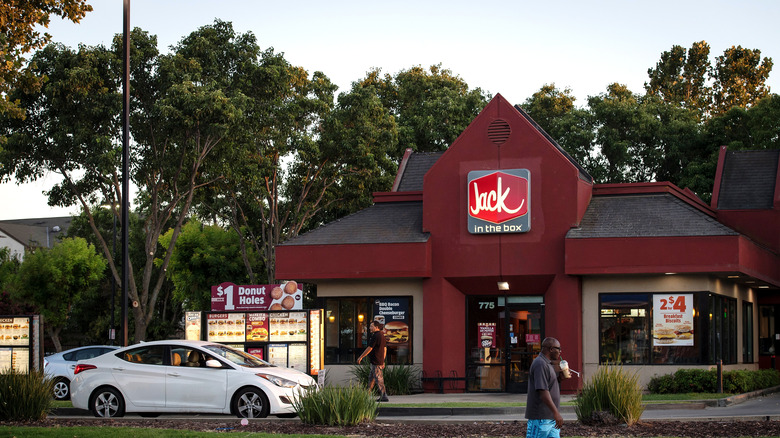The Reason Hardee's And Carl's Jr Filed A Lawsuit Against Jack In The Box
Most of us know that restaurants are in competition with each other. Coffee shops are up against other coffee shops, steakhouses go head-to-head with other steakhouses, casual dining competes with casual dining, the list goes on — it's just the nature of the world. Fast-food restaurants, particularly burger chains, are some of the most competitive stores in the game because they're all pretty similar. Similar menus, similar prices, similar convenience, and they're all just hoping you'll pull off the road and into the drive-thru.
However, sometimes the competition looks a little less than friendly. Sometimes, it gets ugly, and the courts have to become involved. This is exactly what happened in 2007 when Carl's Jr. and Hardees sued Jack in the Box after the latter shared an ad that didn't put the former two in the best light.
According to a report in NBC News, Andrew F. Puzder, the chief executive of CKE, the parent company of both Hardees and Carl's Jr., claimed that Jack in the Box's new ad had gone too far. "They're not being funny," Puzder said.
Jack in the Box's ad implied the competitors' burgers came from an undesirable source
To fully understand the lawsuit, it's important to know two things. One, Hardee's and Carl's Jr. serve burgers made from Angus beef that comes from a specific breed of cattle. Two, at the time, Jack in the Box was selling a sirloin burger, which is a cut of meat.
In a commercial, Jack in the Box implied that "Angus" meat came from the cow's anus. "They need to stop misleading people about what Angus beef is," Pudzer said.
In the commercial, Jack in the Box's mascot, Jack, is asked to point to a cow's "Angus." "I'd rather not," the character responds, per NBC News.
Apparently, the ad did do some harm. According to a Business Insider article, when CKE presented the case, they showed results from a survey detailing that 36% of 404 people believed that Angus beef did in fact come from a cow's anus.
The companies did duke it out in court for a while, according to the same Business Insider article, and CKE was originally denied an injunction to get the ads removed from the air. Though ultimately, both companies settled outside of court.

